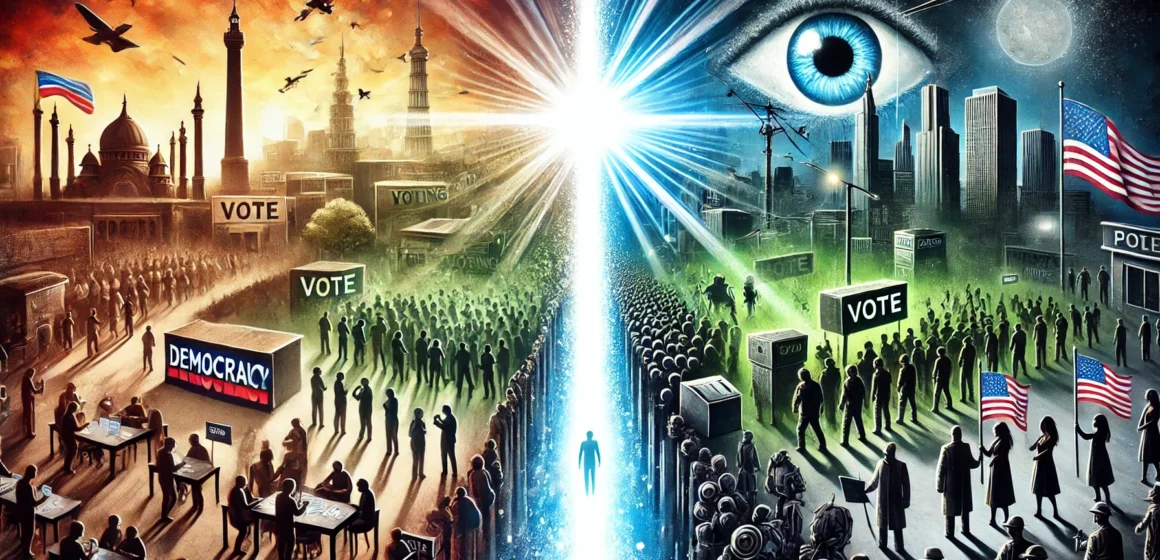The Future of Democracy and the Battle for Power
Democracy has long been regarded as the foundation of freedom, equality, and justice. It provides people with the power to choose their leaders, voice their opinions, and influence policies that shape their lives. However, in recent years, democracy has faced significant challenges. Political polarization, the rise of authoritarianism, misinformation, and technological disruptions have created uncertainty about its future. As the world undergoes rapid transformations, the battle for power continues to play a crucial role in determining the fate of democracy.
The Erosion of Democratic Norms
One of the greatest threats to democracy today is the erosion of democratic norms and institutions. In many countries, governments are increasing their control over the judiciary, restricting press freedom, and silencing political opponents. Elected leaders, who are supposed to uphold democratic principles, often use their positions to consolidate power rather than serve the interests of the public.
This erosion of checks and balances weakens democratic institutions, making them more susceptible to corruption and authoritarian rule. When judicial independence is compromised, laws can be manipulated to benefit those in power. When the media is restricted, the public loses access to unbiased information, leading to misinformation and manipulation. If these trends continue, democracy could gradually be replaced by authoritarian regimes where power is concentrated in the hands of a few.
The Role of Technology in Politics
The rise of digital technology has reshaped political landscapes across the world. Social media platforms have made political discourse more accessible, allowing people to express their views and engage in discussions. However, this increased connectivity has also led to the spread of misinformation and propaganda. Political campaigns now rely on data-driven strategies to target voters, raising concerns about privacy and ethical governance.
Moreover, artificial intelligence (AI) and automation are transforming industries and economies, leading to job losses and social unrest. Governments must address these changes by implementing policies that support workers and ensure economic stability. If democracy fails to adapt to technological advancements, it may become obsolete in the face of new political and economic challenges.
Populism and the Rise of Authoritarian Leaders
Economic instability, social inequality, and political disillusionment have fueled the rise of populist leaders worldwide. These leaders often present themselves as the voice of the people, promising radical change and challenging traditional political structures. However, populism can be dangerous when it undermines democratic values.
Populist leaders frequently attack institutions, restrict media freedoms, and silence dissenting voices. By portraying opposition and criticism as threats to national unity, they justify actions that weaken democracy. The battle for power in such political environments often leads to increased divisions within societies, making democratic governance even more fragile.
Voter Apathy and Political Polarization
Democracy depends on active citizen participation. However, many people have become disillusioned with politics due to corruption, lack of transparency, and inefficiency. As a result, voter turnout has declined in several countries, threatening the legitimacy of democratic systems.
Political polarization is another major challenge. The growing divide between political ideologies has made compromise and cooperation increasingly difficult. In deeply polarized societies, debates turn into conflicts, and opposing sides refuse to engage in meaningful discussions. This weakens democracy, as the ability to find common ground is essential for effective governance.
If democratic societies fail to engage their citizens and bridge political divides, they risk losing public trust. Without active participation and constructive dialogue, democracy cannot function properly, and the battle for power may be won by those who seek to exploit divisions rather than unite people.

The Global Struggle for Democratic Values
The future of democracy is not just a domestic issue but a global concern. The geopolitical landscape is shifting, with authoritarian regimes gaining influence and challenging democratic ideals. Countries that have historically promoted democracy are now facing internal crises, making it difficult for them to advocate for democratic values abroad.
In some regions, democracy is under direct threat from external forces. Cyberattacks, election interference, and disinformation campaigns have been used to weaken democratic institutions and influence political outcomes. In this global battle for power, democracy must prove its resilience by adapting to new challenges while maintaining its core principles.
The Path Forward
Despite these challenges, democracy has survived and evolved throughout history. It has faced threats before and emerged stronger by adapting to changing circumstances. Moving forward, there are several key steps that societies must take to ensure democracy’s survival:
-
Strengthening Democratic Institutions – Governments must protect judicial independence, uphold press freedom, and ensure transparency in decision-making processes.
-
Promoting Digital Literacy – Citizens need to be equipped with the skills to identify misinformation and navigate the complexities of the digital world responsibly.
-
Encouraging Civic Engagement – Voter education campaigns and initiatives that promote political participation can help restore faith in democracy.
-
Bridging Political Divides – Leaders and citizens alike must work toward constructive dialogue and finding common ground to reduce polarization.
-
Leveraging Technology for Good – While technology poses challenges, it can also be used to strengthen democracy through secure voting systems, improved access to information, and digital platforms that encourage civic participation.
Conclusion
The battle for power will always be a part of politics, but the future of democracy depends on the collective efforts of governments, institutions, and citizens. While democracy is facing serious threats, it is not beyond repair. By taking proactive steps to protect democratic values and adapt to modern challenges, societies can ensure that democracy remains a force for freedom, equality, and justice.
Ultimately, the survival of democracy rests in the hands of those who are willing to stand up for its principles. The battle for power must not be allowed to erode the foundation of democracy; instead, it should serve as a reminder of the need to safeguard and strengthen democratic institutions for future generations.




Leave a Reply